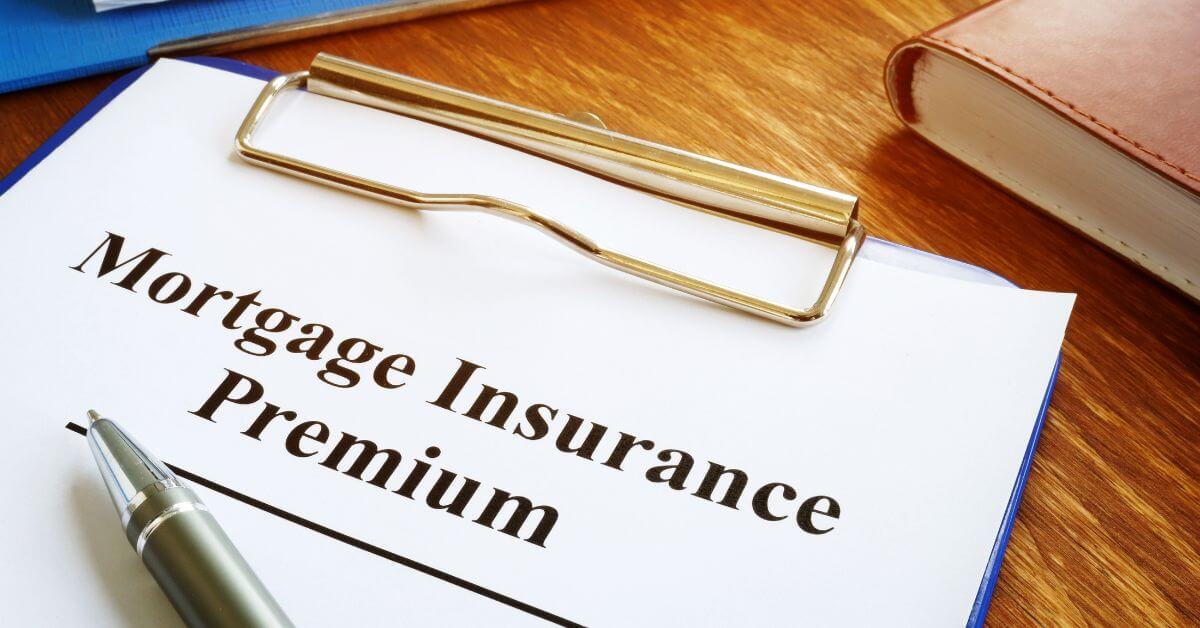The journey to homeownership can be long and costly.
And while FHA loans do have many benefits that make them more affordable and accessible to potential homeowners, they come with unavoidable costs.
One of these unavoidable costs is the FHA mortgage insurance.
This article will tell you everything you need to know about FHA mortgage insurance and how to calculate it.
What is FHA Mortgage Insurance?
FHA mortgage insurance is mandatory insurance that you must get with your loan as part of the FHA loan requirements. This insurance protects the lender in case you default on your loan.
It is different from other types of mortgage insurance because it is backed by the federal government, which makes it more accessible to borrowers who may not qualify for conventional loans.
The insurance is divided into two parts: upfront mortgage insurance premiums and annual mortgage insurance premiums. Let’s delve into them!
Upfront Mortgage Insurance Premium
The Upfront Mortgage Insurance Premium (UFMIP) is a one-time fee you will have to pay at closing.
The UFMIP rate is currently 1.75% of the base loan amount.
You can choose to have this fee rolled into the loan amount, which means you will pay interest on it over the life of the loan.
Annual Mortgage Insurance Premium
The Annual Mortgage Insurance Premium (MIP) is an ongoing fee that you will pay as part of your monthly mortgage payment.
Currently, the MIP rate ranges from 0.45% to 1.05% of the base loan amount per year.
The MIP rate varies depending on the size of your down payment, the length of your loan term, and your loan-to-value ratio (LTV).
Generally, the higher your LTV ratio, the higher your MIP rate will be.
Do FHA Loans Have PMI?

You may find, in doing your FHA research, that the terms MIP and PMI are sometimes used interchangeably.
FHA loans do not have or require private mortgage insurance (PMI) associated with conventional loans.
The government-backed loan program only requires a mortgage insurance premium (MIP), which is similar to the private mortgage insurance (PMI) that is required for conventional loans.
Why do FHA Loans Require MIP?
Unlike conventional loans, FHA loans have a more relaxed credit score and down payment requirements, making them a popular option for borrowers who may not qualify for conventional loans.
However, because of the more flexible requirements, the risk of default is higher. Mortgage insurance helps mitigate this risk by providing a financial cushion to the lender in case of default.
The FHA insures their loans and requires everyone with an FHA loan to pay MIP. The collected MIP is then used to fund the FHA’s Mutual Mortgage Insurance (MMI) Fund. The MMI fund is used to pay out claims to lenders in case a borrower defaults on their FHA loan.
The same is required if you obtain an FHA 203k loan; the amount varies based on the loan amount, term, and down payment.
By requiring mortgage insurance, the FHA is able to protect lenders against losses and ensure that they are willing to continue providing financing for FHA loans.
What Does FHA Mortgage Insurance Cover?
As we have mentioned, FHA mortgage insurance (MIP) covers the lender against the risk of a borrower defaulting on FHA loans.
Here is a list of what FHA mortgage insurance covers:
- Mortgage default: FHA mortgage insurance covers the lender should you default on the loan. This includes both missed payments and foreclosures.
- Loan balance: The mortgage insurance covers the unpaid balance of the loan, up to the maximum loan amount in the case of a default
- Property repairs: If the property is damaged or destroyed and you aren’t able to make repairs, the FHA mortgage insurance can cover the cost of repairs or replacement.
- Title issues: FHA mortgage insurance can cover any title issues that may arise during the loan process.
- Lender’s legal fees: Should the lender needs to take legal action against you, the FHA mortgage insurance can cover the lender’s legal fees.
It’s important to remember that FHA mortgage insurance only covers the lender, not you, the borrower. If you default on your loan, you may still be responsible for any remaining balance after the lender receives payment from the mortgage insurance.
Does FHA Loan Insurance Protect the Borrower?

It’s clear that MIP protects lenders, but does it protect you as the borrower of an FHA loan? Well, not really.
MIP does not protect you if you experience financial hardship or lose your job. Even if the worst happens and your home faces foreclosure, you may still be responsible for any remaining balance owed on the loan.
But, there are some benefits.
- The security that MIP offers lenders, is what allows lenders to be more flexible with their credit requirements and down payments. This makes it easier for you to qualify for an FHA loan.
- FHA loans with MIP have limits on the cost of fees and charges that lenders can impose, which can help to reduce the overall cost of the loan.
- MIP is a fixed cost that is included in the monthly mortgage payment and is not affected by changes in interest rates, which can help you budget more effectively.
Because MIP is aimed to protect the lender and not you the borrower, it is very important for you to look at your financial standing before applying for an FHA loan and make sure that you will be able to honor your mortgage payments for the duration of the mortgage.
How is PMI Calculated on FHA Loan?
FHA loans require mortgage insurance premiums (MIP). The MIP for an FHA loan is calculated based on the following factors:
- Loan amount: The MIP rate for an FHA loan is determined based on the loan amount you qualify for. The higher the loan amount, the higher the MIP rate.
- Loan term: The MIP rate for an FHA loan varies depending on the length of the loan term. Generally, shorter loan terms have lower MIP rates than longer loan terms.
- Loan-to-value (LTV) ratio: The LTV ratio is the amount of the loan compared to the appraised value of the property. The MIP rate for an FHA loan increases as the LTV ratio increases.
To calculate the MIP for an FHA loan, the following formula is used:
MIP = (Loan amount x MIP rate) / 12
MIP Calculation Example
If you have a $200,000 FHA loan with an 1.75% upfront MIP rate and a 0.85% annual MIP rate, the monthly MIP would be calculated as follows:
Upfront MIP payment = $200,000 x 1.75% = $3,500
Annual MIP payment = ($200,000 x 0.85%) / 12 = $141.67
Total monthly payment (including MIP) = principal and interest payment + $141.67
Can I Pay PMI Upfront on an FHA Loan?

As we have mentioned, your MIP is divided into two parts, namely the upfront mortgage insurance premium (UFMIP) and the annual mortgage insurance premium (MIP).
You can definitely pay the UFMIP in full at closing. While you do have the option to roll it into your loan, doing so will increase your monthly payments and overall loan cost. So if you can pay it all upfront, do it.
You cannot pay all of your annual mortgage insurance premium upfront. This is paid monthly for the life of the loan or until you refinance or pay off the loan.
FHA Loan PMI Requirements
Here are the basic requirements or characteristics of FHA loan MIP. You will see that we have covered most of these in detail already.
- Upfront Mortgage Insurance Premium (UFMIP): The UFMIP is a one-time fee paid at closing, typically financed into the loan amount. The UFMIP rate for most FHA loans is 1.75% of the base loan amount.
- Annual Mortgage Insurance Premium (MIP): The MIP is an ongoing fee paid monthly as part of the borrower’s mortgage payment. The MIP rate for most FHA loans is determined by the loan term, loan amount, and loan-to-value (LTV) ratio. For most FHA loans, the MIP rate ranges from 0.45% to 1.05% of the base loan amount annually.
- MIP duration: FHA mortgage insurance is typically required for the life of the loan unless the borrower meets certain criteria to have it removed or refinanced the loan. For loans with an LTV ratio greater than 90%, MIP is required for the life of the loan.
- MIP cancellation: FHA mortgage insurance can be canceled for loans with an LTV ratio of 90% or less after 11 years if the borrower has paid the MIP for at least 11 years and the loan balance is 78% or less of the original property value.
- Streamline refinance: If a borrower with an existing FHA loan refinances into another FHA loan, they may be eligible for a reduced MIP rate through an FHA streamline refinance program. This can reduce the borrower’s monthly mortgage payment.
Always remember that FHA loan MIP rates and requirements are subject to change and may vary based on the specific loan type and borrower qualifications. If you’re looking to get the best deal in any of these areas, reach out to us!
How Long do You Pay MIP on an FHA Loan?
For FHA loans, borrowers are required to pay an annual mortgage insurance premium (MIP) for the life of the loan, unless they refinance or pay off the loan.
This means that unlike conventional loans, where borrowers can request to have private mortgage insurance (PMI) removed once they reach a certain equity level, FHA borrowers are required to pay MIP for the entire term of their loan.
There are a few exceptions to this rule, however.
Before June 3, 2013
If you obtained your FHA loan before June 3, 2013, and put less than 10% down, you may be able to cancel your MIP after 11 years and once your loan-to-value (LTV) ratio reaches 78% or less.
If you put more than 10% down, your MIP can be canceled after 11 years, and once your LTV ratio reaches 80% or less.
After June 3, 2013
If you obtained your FHA loan on or after June 3, 2013, and put less than 10% down, you will be required to pay MIP for the life of the loan.
If you put more than 10% down, you will be required to pay MIP for at least 11 years, and the MIP will be removed when your LTV ratio reaches 78% or less.
Refinancing
Refinancing into a conventional loan is another way to get rid of the MIP requirement on an FHA loan. However, you should carefully consider the costs and benefits of refinancing before making a decision.
FHA Mortgage Insurance vs. PMI
To emphasize, MIP and PMI, while used interchangeably are quite different and we want to make those differences clear to you.
This table shows you just how different these insurance types are.
| FHA Loans with MIP | Conventional Loans with PMI | |
|---|---|---|
| Definition | Insurance for FHA loans | Insurance for conventional |
| Required Down Payment | Minimum 3.5% | Minimum 3% (may vary) |
| Upfront Payment | 1.75% of loan amount | Varies (usually financed) |
| Annual Payment | Paid monthly | Paid monthly |
| Premium Amount | Varies based on LTV ratio | Varies based on LTV ratio |
| Cancellation Criteria | Cancelled after 11 years or at 78% LTV | Requested by borrower at 80% LTV (may vary) |
| Renewal Criteria | N/A | Re-evaluated annually |
| Coverage Period | Life of loan | Until 20% equity is reached |
| Transferable to New Property | Yes | Yes |
It’s important to note that this table provides a general comparison of FHA MIP and PMI. Specific terms and conditions may vary depending on the lender so be sure to understand the specific requirements and costs associated with your loan.
Is Getting FHA Mortgage Insurance Worth It?
Yes, not only is it worth it, but it is also mandatory. If you have an FHA loan, you must have MIP.
Hopefully, you now have a clear understanding of what MIP covers, how to calculate it, and how it helps you as a borrower.
If you have any lingering questions, give us a call, and we’ll help you address them. We are ever ready to make your home ownership dream a reality.






